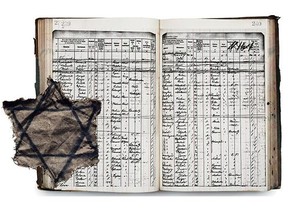
Veronica Low’s elderly father wants to be buried one day beside his own mother in a tiny Jewish graveyard in Switzerland.
Seems a simple enough request. But Low, a Toronto author/producer who heads up the Roar Group, discovered she could not fulfill her father’s wish without a copy of his birth certificate.
From our newsroom to your inbox at noon, the latest headlines, stories, opinion and photos from the Toronto Sun.
Thanks for signing up!
A welcome email is on its way. If you don't see it, please check your junk folder.
The next issue of Your Midday Sun will soon be in your inbox.
And all his documents were destroyed in Poland during the Second World War to hide his identity from the Nazis. How to prove the mother-son relationship that would permit burial?
Low said she getting nowhere with Canadian and Polish officials on her document search. On a whim she turned to genealogy giant Ancestry to see what information they could provide.
Within seconds, she found her father’s ID from the site’s Holocaust Survivors and Victims Database, alongside the names of his parents, place of birth, and birthdate.
The information she found is part of more than 21 million Holocaust records that Ancestry has made available free since 2008 at www.ancestry.com/alwaysremember.
It was what she needed to clear the way for her father’s eventual burial beside his mother.
In an interview to mark Holocaust Remembrance Day, Low talked about her gratitude to Ancestry for quickly solving an identity issue where others could not.
“This is so important to my father. He’s always said, ‘I want to be buried next to my mother.’
“So now he’ll have that peace of mind for eternity. After the rabbi said ‘yes’ I burst into tears.”
Low’s father lost 13 family members in the Holocaust. Low has seen some of their names on the Berlin Memorial to the Murdered Jews of Europe, “an overwhelming experience.”
RECOMMENDED VIDEO
But, she added, an experience that leaves you in disbelief over how humans can treat each other.
“And now hatred is on the rise. Nazism is on the rise. People are in denial of the Holocaust. It’s driven by hate.”
Before the internet or DNA testing, there’d be an occasional story about Holocaust survivors discovering by chance that other family members had survived.
Siblings would find each other living blocks apart in the same city, for example, and be reunited many years after the war.
“It is exciting to think that Ancestry’s database can now connect some of the descendants of survivors, making family links that might otherwise vanish for good,” said Low.
With anti-semitism and Holocaust denial on the rise, it’s perhaps more important than ever that Ancestry continues to preserve this original Holocaust documentation.
On Holocaust Memorial Day, they donated 25,000 Ancestry DNA testing kits to the DNA Reunion Project at the Centre for Jewish History.
The project lets Holocaust survivors and their children have free DNA testing in hopes of identifying and connecting with relatives.
“Without their information there’s no way my father would be able to be buried beside his mother — his ultimate wish. And now he will.
“There are no words that can describe my gratitude that the information was there.”


